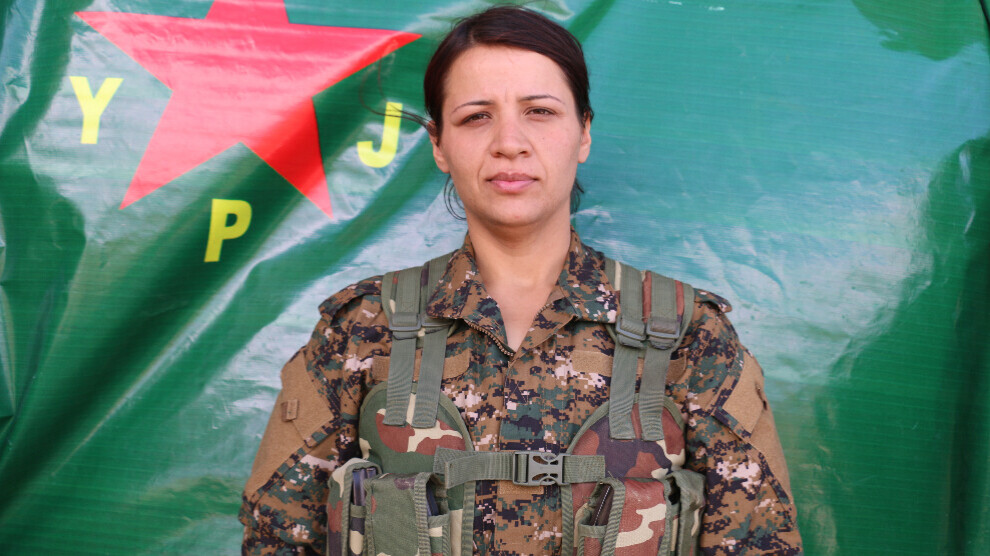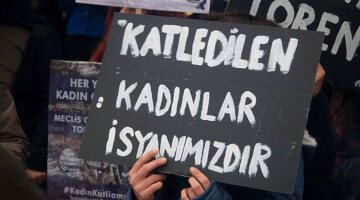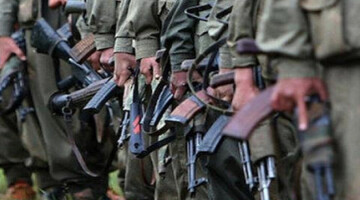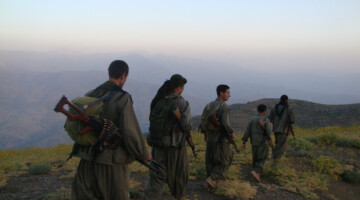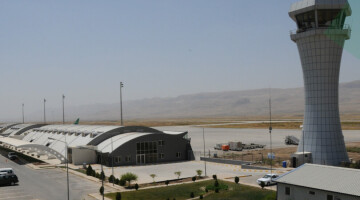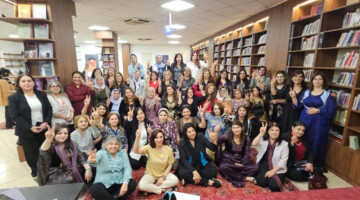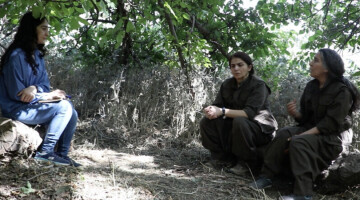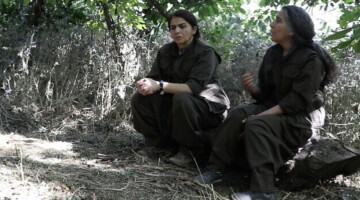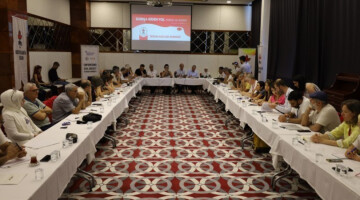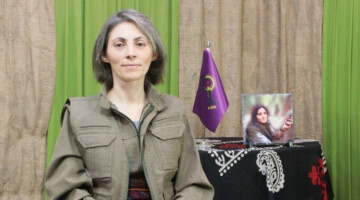Rojîn Efrîn (Mizgîn Mamo), born in 1992 in Bilbil district of Afrin, grew up in a patriotic family. In 2013, Rojîn witnessed the exciting establishment of the Martyr Rûken Battalion and decided to join the freedom struggle. The establishment of this battalion at a time when the Rojava Women's Army was sparked in Afrin motivated Rojîn to join the struggle. Rojîn, who shone with her revolutionary spirit in her struggle against the dark forces, stood not only for the lands of Afrin, but also against the oppression of ISIS gangs in Manbij. By participating in the operation for Manbij, she showed her determination to spread the fire of freedom to wider lands. While her name echoed in the Manbij operation, the love for the country in her heart was felt everywhere. Standing shoulder to shoulder with her comrades, Rojîn, after the liberation of Manbij from ISIS, returned to the lands of Afrin where she was born and raised in 2016 and led the operation for Shehba.
The love in her heart turned into a great compassion for children
Martyr Rojîn volunteered at a kindergarten for orphaned children before stepping into the freedom struggle. When she arrived in Afrin in 2016, her first stop was this kindergarten. The love in her heart turned into a great compassion for children. Her interest in those innocent faces not only touched their lives, but also touched the hearts of the society. The world views of the children were shaped by her affectionate looks and teachings. She continued to exist as a guide who saw the potential in each child and instilled hope in them. Her courage and determination in the struggle for freedom, blended with the compassion and love in her relationship with children, revealed the values she carried as a human being at her core.
She also had the soul of an artist who left a mark on people's hearts
With the military and ideological competence she acquired in a short time, she became a company commander. Her comrades gathered around her and felt safe with her. They remembered once again what it meant to support each other and stand in solidarity while moving towards a noble goal. She attracted attention not only in the military field, but also in her artistic aspects. The verses she wrote allowed her to express her deep thoughts and feelings. She also had the soul of an artist who left a mark on people's hearts with each word.
She was like a monument of beauty woven with ethical and aesthetic values. Her journey into the depths of her soul led her to a great mental transformation, and she never stopped serving the paradigm of women's liberation. She conveyed the power, freedom and resistance within women to life in all its subtlety. This powerful life of hers shed light on women's struggle for existence, empowering and encouraging them. With her passionate and determined stance, she added voice to women's voices and strength to their strength.
Reading Öcalan's book How to Live?’, she deepened herself even more
Martyr Rojîn, a soul dedicated to the women's liberation struggle, always carried Leader Apo's (Abdullah Öcalan’s) book ‘How to Live?’ with her, even on the war front. This book was a guide and source of inspiration for her. She would start reading the book every chance she got, travelling between the pages and getting lost in the depths of the book. Leader Apo's philosophical and deeply affecting thoughts would open new horizons in her inner world and inspire her. While reading this book, she also developed her own thoughts, beliefs and spirit of struggle; she deepened herself even more.
Martyr Rojîn, who was aware of male-dominated approaches and waged a determined struggle against this, aimed to bring a new dimension to the social struggle of women by focusing on Leader Apo's perspective of women's militarisation. In the women's liberation struggle, she was the one who questioned and aimed to transform the male-dominated system, meticulously analysed, assimilated and applied the solutions offered by Leader Apo for women's liberation.
he learned from her experiences and her mistakes
Martyr Rojîn, who was not satisfied with what existed and always based on development, was in a passionate and determined effort to develop military tactics. She constantly renewed and improved herself. She made great efforts to question the current situation, discover new ideas and develop more effective strategies. She analysed military tactics comprehensively and in-depth, focusing on identifying shortcomings and improving them. She worked meticulously and paid attention to detail in the process of developing military tactics. Instead of simply accepting existing tactics, she criticised them and sought to discover more effective and efficient ones. In this process, she adopted a disciplined, systematic and goal-orientated working style and endeavoured to continuously improve herself in the military field. She learned from her experiences and her mistakes and strove to improve herself.
Known for her courage, determination and self-sacrifice in the war environment
Martyr Rojîn, who was a source of morale and strength wherever she was with her sincere and honest personality, took part in the forefront of the Shehba operation in 2016, when the gangs attacked Shehba intensively, after the great victory achieved in the Manbij operation. Known for her courage, determination and self-sacrifice in the war environment, Rojîn always aimed to lead the struggle and inspire her comrades. Martyr Rojîn took an active role in the war until she was martyred in the village of Şealê in Shehba on 21 November 2016.

